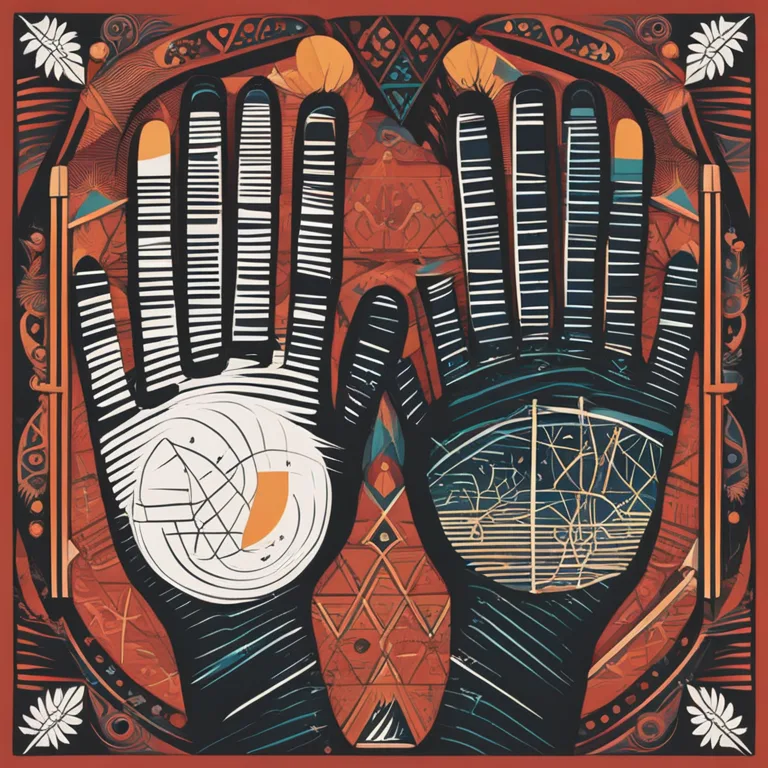
The Accuracy of Palm Lines: A Deep Dive
Are the etchings on your palms mere creases or windows to your personality and fate? This article delves into the validity of palm line interpretations.
article by Nora Pennington
The Intrigue Behind Palmistry
Palmistry, or chiromancy, has fascinated humanity for centuries. It is the art of interpreting the lines and features of the palm to reveal insights into a person’s character and potential future events. In modern times, this ancient practice has seen a resurgence as individuals seek personal guidance and a deeper understanding of themselves. While traditionally steeped in mysticism, recent efforts to intertwine palmistry with psychological analysis have shone a new light on its potential legitimacy and sparked a cultural dialogue on the nature of these intricate hand patterns.

Scientific Scrutiny and Skepticism
The scientific community has been inherently skeptical when it comes to claims of divination or predictive precision by any means, including palmistry. Critics argue that the practice lacks empirical evidence and reproducible results, branding it a pseudoscience. However, in an era where the psychological and neurological underpinnings of human behavior are better understood, some have attempted to correlate aspects of palmistry with genetic factors or psychological profiles, though such studies often remain contentious and inconclusive.

A Blend of Art and Science?
Recent research into dermatoglyphics—scientific analysis of fingerprints, hand prints, and footprints—has suggested that certain patterns may indeed be indicative of personality traits or genetic disorders. While far from the detailed predictions of palm readers, this indicates that our hands may hold more information than previously acknowledged. This burgeoning field may, in time, lend credibility to some aspects of palmistry, assuming clear scientific methodologies and verifiable results become more widespread.

The Power of Subjective Experience
Despite the absence of robust scientific endorsement, many individuals report profound experiences with palm readings. Some argue that the power of belief and the palmist’s skill in reading people can lead to enlightening, even therapeutic, encounters. This subjective validation is powerful and shapes the human experience—whether or not the accuracy of palm lines can be scientifically vetted.
Cultural and Historical Context
Palmistry transcends cultural and historical barriers, having been practiced in various forms across the world. The interpretation of palm lines is not uniform; it changes with cultural context, which inherently affects perceived accuracy. In 2024 and beyond, as global connectivity increases, the synthesis of these diverse practices might lead to a more standardized approach, potentially affecting the accuracy of readings.
The Future of Palmistry Technology
As we progress further into the digital age, technology may offer innovative methods of testing the accuracy of palm lines. Imagine apps employing artificial intelligence, machine learning, and big data analysis to perform palm readings. The possibility of large-scale pattern recognition and predictive analytics could revolutionize the field, subjecting palmistry to more rigorous scientific examination than ever before.
Your Personal Journey with Palm Lines
At the core of the debate over palm line accuracy is the personal journey of exploration. Whether or not the lines on your palm can truly chart the course of your life, engaging with palmistry can prompt introspection and self-discovery. It is a unique and personal encounter that can provoke questions and provide comfort, irrespective of scientific accuracy.
Published: 1/5/2024
Modified: 1/5/2024
More predictions
Come back here soon to learn more about yourself and your future


The Dynamic Nature of Palm Lines
Discover the fascinating reasons behind the changing patterns of your palm lines and how they reflect the story of your life.


The Essence of Hand Analysis: A Guide to Palmistry
Delve into the art of palmistry, the study of hands, revealing how reading palms can provide insight into one's personality and future.


The Sun Line: A Ray of Personal Brilliance
Discover the significance of the Sun Line on your palm and its implications for fame, success, and creativity in palmistry practices.